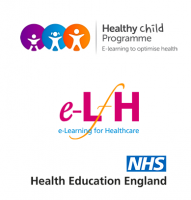Self-Harm and Common Mental Health Problems course for GPs



This session describes four evidence-based talking therapies used for treating mental health problems in young people in a range of settings. It also briefly covers current guidance on the management of specific conditions and makes reference to pharmacological interventions when appropriate.
Learning Objectives
By the end of this session you will be able to:
- Compare and contrast four different types of talking therapies that can be used for treating mental health disorders in young people
- List commonly used psychotropic medication that might be used in treating certain types of mental health disorder in young people, and the problems that may be associated with them
- Summarise practical approaches when working on common mental health disorders in young people and access links to recommended first-line management
This session describes some of the talking therapies that can be useful in young people, particularly for those for whom generic approaches and ‘watchful waiting’ have proved ineffective. All of these therapeutic approaches require appropriate training and delivery by a trained health care professional.
Before commencing this session you should complete the followng AH sessions:
- 10_001 Mental Health and Well-Being in Adolescence (401-0046)
- 10_004 The Assessment of Common Mental Health Problems (401-0049)
- 10_006 - Managing Common Mental Health Problems (401-0051)
Dr Deborah Christie is a Consultant Clinical Psychologist, Honorary Reader and Clinical Lead for Paediatric and Adolescent Psychological Services at University College London Hospitals NHS Foundation Trust. She works with young people searching for ways to live with chronic illness including diabetes, obesity, arthritis, chronic fatigue and chronic pain syndromes. Current research interests include neuropsychological outcomes in children and adolescent survivors of meningitis, quality of life measures in chronic illness and the development of effective multidisciplinary interventions for diabetes and obesity in children and adolescents.



- Assessment course for GPs
- Posted By eIntegrity Healthcare e-Learning
- Posted Date: 2025-01-09
- Location:Online
- This session describes the main tools used to assess trainee GPs and distinguishes between formative...
- Self Appraisal course for GPs
- Posted By eIntegrity Healthcare e-Learning
- Posted Date: 2025-01-09
- Location:Online
- This session describes an approach to self-appraisal, and provides practical tips and guidance about...
- Telephone Consultations course for GPs
- Posted By eIntegrity Healthcare e-Learning
- Posted Date: 2025-01-09
- Location:Online
- This session explores the issues that may arise when a consultation is conducted over the telephone,...
- Difficult Consultations course for GPs
- Posted By eIntegrity Healthcare e-Learning
- Posted Date: 2025-01-09
- Location:Online
- This interactive session explores some of the difficulties associated with patients whose behaviour ...
- Balint's Ideas course for GPs
- Posted By eIntegrity Healthcare e-Learning
- Posted Date: 2025-01-09
- Location:Online
- This session introduces Michael Balint, outlines his principal ideas and describes his innovative us...








